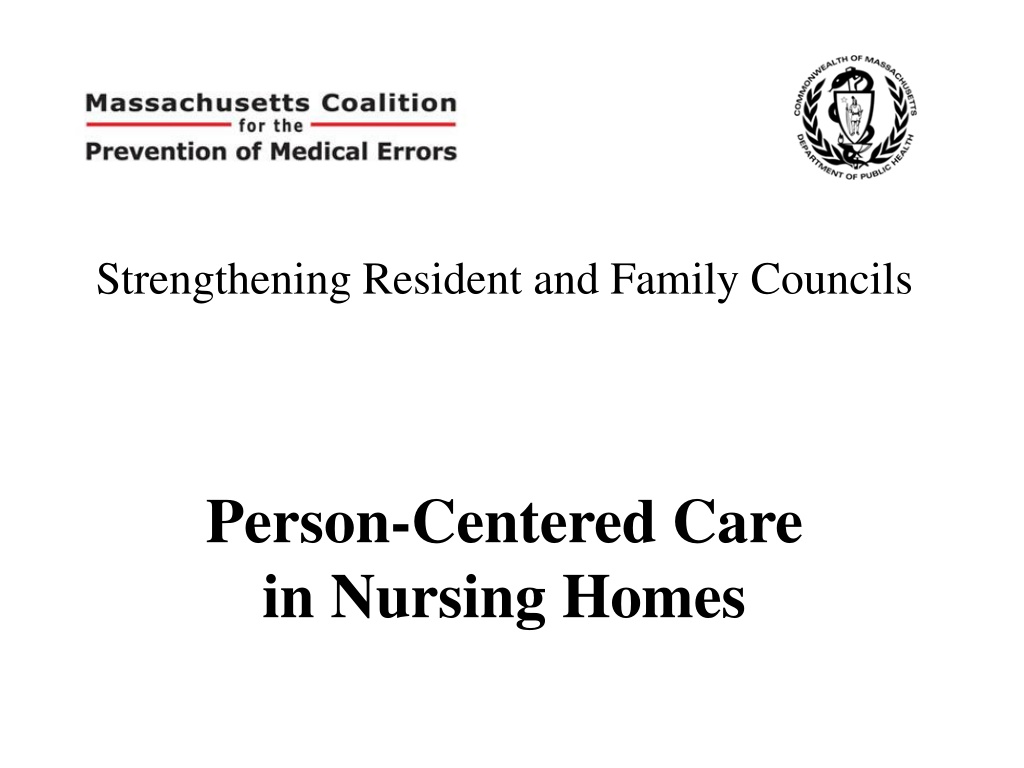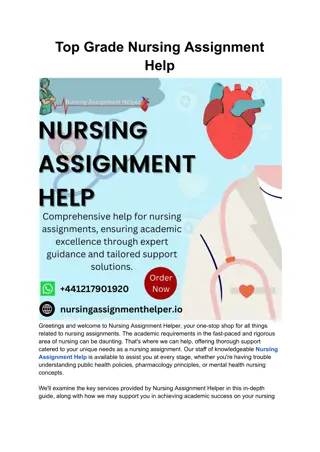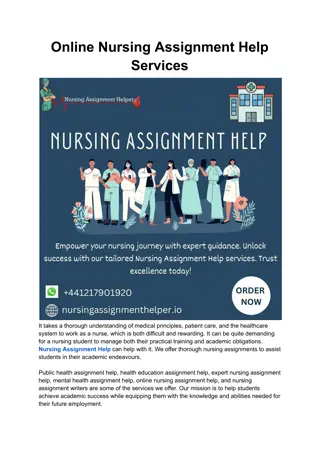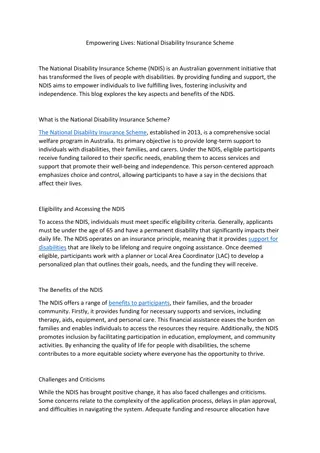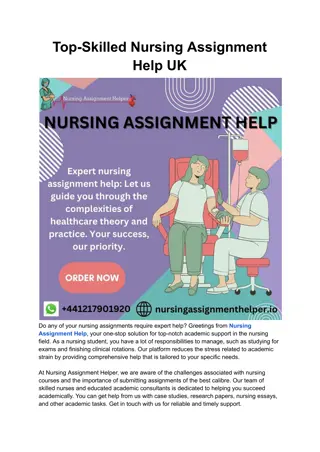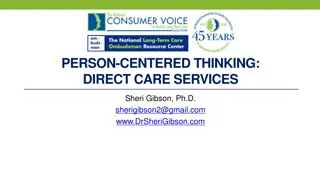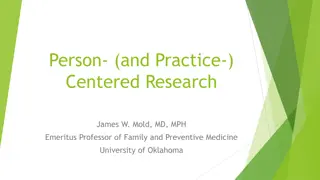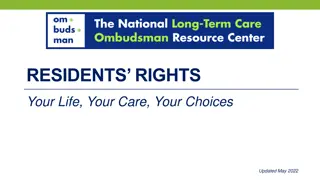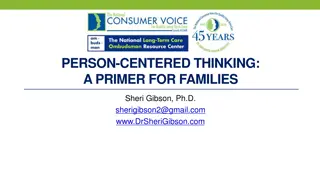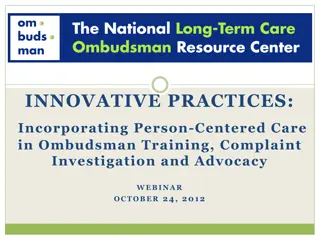Enhancing Person-Centered Care in Nursing Homes
Explore the essence of person-centered care in nursing homes, focusing on engaging residents and families, partnering for improvement, and enhancing quality of life. Discover the importance of keeping residents at the center of care planning, nurturing meaningful relationships, honoring individuality, and promoting independence to empower residents in their daily lives.
Download Presentation

Please find below an Image/Link to download the presentation.
The content on the website is provided AS IS for your information and personal use only. It may not be sold, licensed, or shared on other websites without obtaining consent from the author. Download presentation by click this link. If you encounter any issues during the download, it is possible that the publisher has removed the file from their server.
E N D
Presentation Transcript
Strengthening Resident and Family Councils Person-Centered Care in Nursing Homes
Introduction Goals Engage residents and families Partner with nursing homes on improvement Improve quality of life for residents This session: Person-centered Care
Person-centered Care: How can we strengthen our commitment? Lori Todd, RN, LNHA Executive Director
What is person-centered care? The importance of keeping the resident (person) at the center of care planning and decision-making is honored. Promotes choice, purpose, and meaning in daily life There are many dimensions of care and person-centered values Let s review some of the values, and imagine how they could change care practices if we think a bit differently.
Relationships Person-centered care is the bond between the person who is receiving the care and the person who is giving the care or providing support services. When ongoing relationships flourish, then values, preferences, choices and desires are known, acknowledged, and met. Knowing the person is key!
Individuality What would make your bedroom feel more like home? Examples: Are you surrounded by pictures and items that were once important to you at home? Do you have enough lighting, lamps ? Can you have a refrigerator in your room if you want to? What would make the facility feel more like home? Examples: Are there comfortable areas to visit with friends or family? How could you make your beliefs and choices understood better? Examples: Is there a way to have employees understand and know you better?
Independence What small changes in your day would make you feel more independent and in control of your day? Examples: Can you decide what to wear? When you bathe? During your day, does anything make you feel dependent on the nursing home team members? Examples: Is there an outdoor space you can access?
Privacy Is there some small change that would make you feel that your privacy is respected more? Examples: Can you shut your door, close your curtain, ask to have undisturbed time? Can you have private time with loved ones?
Partnership Is there any way that you could feel closer to your caregivers and the support staff that would strengthen your relationship with them? Examples: Do you have the same people take care of you most of the time? Is there a way to be involved in the employee hiring process?
Choice Are there things that make you feel that you have no say in matters? Can you think of some choices you would like to make that are currently being made for you? Examples: Can you choose your bedtime/wake time? When you take your medications?
Dignity Think about what makes you feel dignified . While living in the nursing home, does anything compromise your dignity? Examples: Are you made to wear clothing protectors? When you shower, do you change clothes in the bathing suite when you arrive, so as not to be transported in a blanket?
Respect Are there issues around respect? Examples: Are you attending your care plan meetings? Does your opinion count? Do your caregivers know about the person you are and your life history before you came to live in the nursing home?
Rights Do you know you rights as a resident of the nursing home? Do you ever feel they are compromised? If so can you describe those circumstances? What would you change?
Food for thought: There are many ways to improve life in a nursing home. Looking at some of the institutional practices is a way to begin a journey to person-centered care. Resident and family councils are a way to work together and start to prioritize ways to make changes, whether small or large. When we work together and try small changes - eventually when we look back, we will see how far we ve come.
Reviewing values and care practices will help improve life for residents and team members Working together can increase bonds, strengthen relationships and make life a better place for all involved Remember: One small step at a time and celebrate successes!
